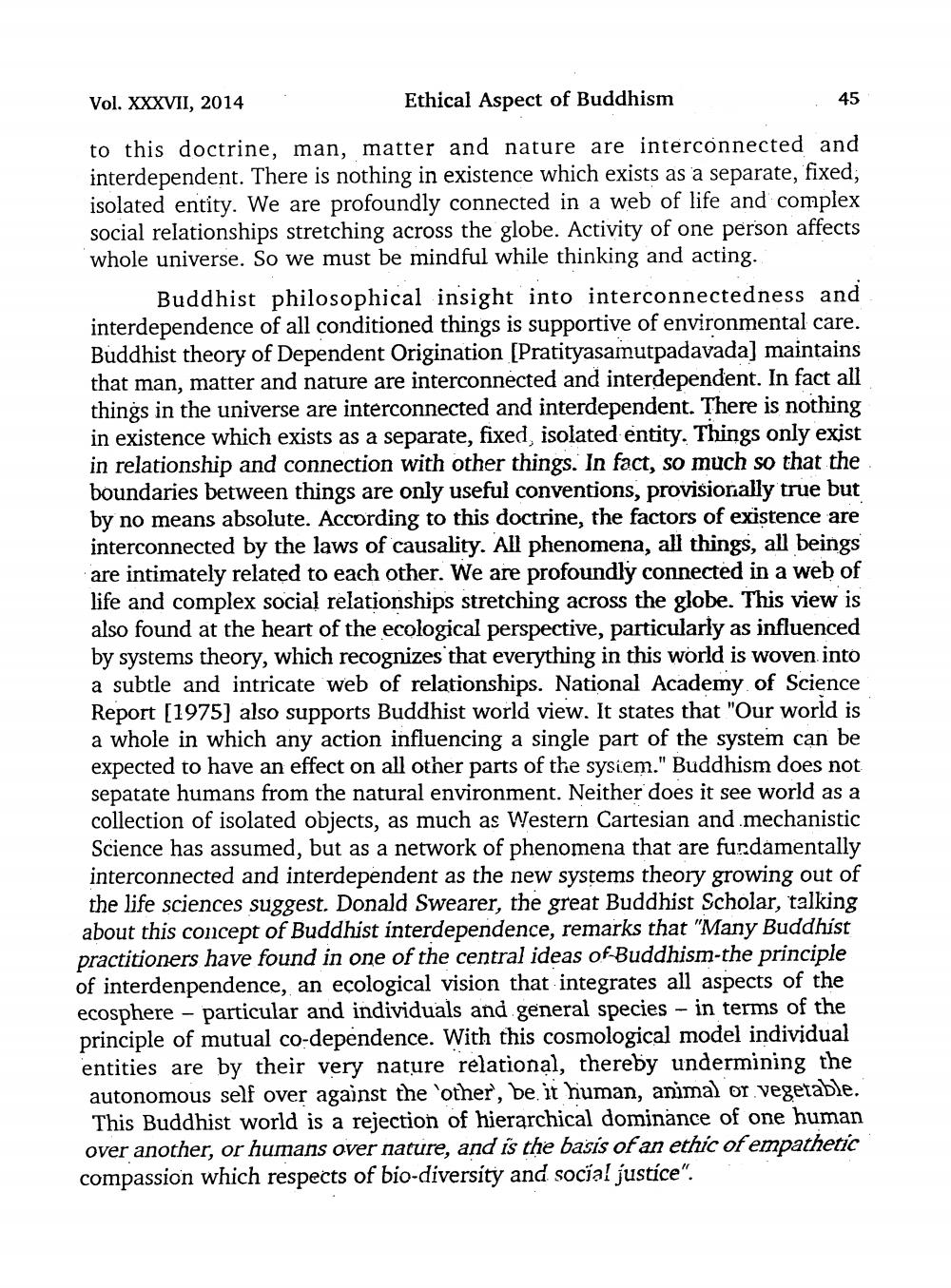________________
Vol. XXXVII, 2014
Ethical Aspect of Buddhism
45
to this doctrine, man, matter and nature are interconnected and interdependent. There is nothing in existence which exists as a separate, fixed; isolated entity. We are profoundly connected in a web of life and complex social relationships stretching across the globe. Activity of one person affects whole universe. So we must be mindful while thinking and acting.
Buddhist philosophical insight into interconnectedness and interdependence of all conditioned things is supportive of environmental care. Buddhist theory of Dependent Origination [Pratityasamutpadavada] maintains that man, matter and nature are interconnected and interdependent. In fact all things in the universe are interconnected and interdependent. There is nothing in existence which exists as a separate, fixed, isolated entity. Things only exist in relationship and connection with other things. In fact, so much so that the boundaries between things are only useful conventions, provisionally true but by no means absolute. According to this doctrine, the factors of existence are interconnected by the laws of causality. All phenomena, all things, all beings are intimately related to each other. We are profoundly connected in a web of life and complex social relationships stretching across the globe. This view is also found at the heart of the ecological perspective, particularly as influenced by systems theory, which recognizes that everything in this world is woven into a subtle and intricate web of relationships. National Academy of Science Report [1975] also supports Buddhist world view. It states that "Our world is a whole in which any action influencing a single part of the system can be expected to have an effect on all other parts of the system." Buddhism does not sepatate humans from the natural environment. Neither does it see world as a collection of isolated objects, as much as Western Cartesian and mechanistic Science has assumed, but as a network of phenomena that are furdamentally interconnected and interdependent as the new systems theory growing out of the life sciences suggest. Donald Swearer, the great Buddhist Scholar, talking about this concept of Buddhist interdependence, remarks that "Many Buddhist practitioners have found in one of the central ideas of Buddhism-the principle of interdenpendence, an ecological vision that integrates all aspects of the ecosphere - particular and individuals and general species - in terms of the principle of mutual co-dependence. With this cosmological model individual entities are by their very nature relational, thereby undermining the autonomous self over against the 'other', be it human, animal or vegetable.
This Buddhist world is a rejection of hierarchical dominance of one human over another, or humans over nature, and is the basis of an ethic of empathetic compassion which respects of bio-diversity and social justice".




